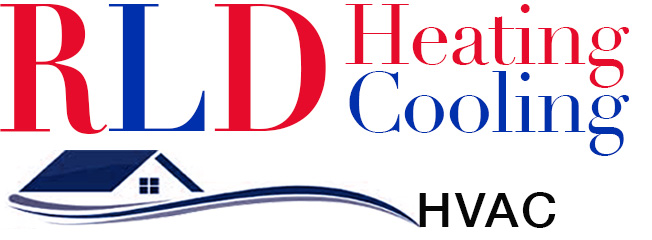Window AC V/s Central AC– The better choice for you!
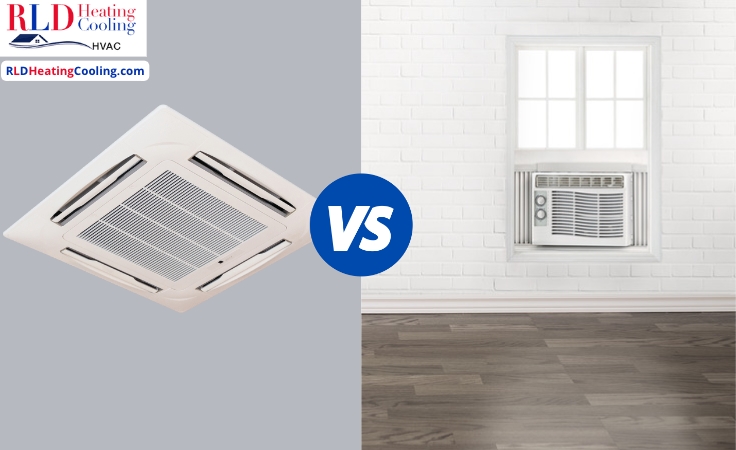
If you’re thinking about anything or everything regarding Window AC V/S Central AC, this blog will help you clear all your doubts.
These days, you only want a compact air conditioning system that meets all your needs and makes your space comfortable.
But choosing between investing in and installing Central air conditioning or a window unit can be challenging and confusing.
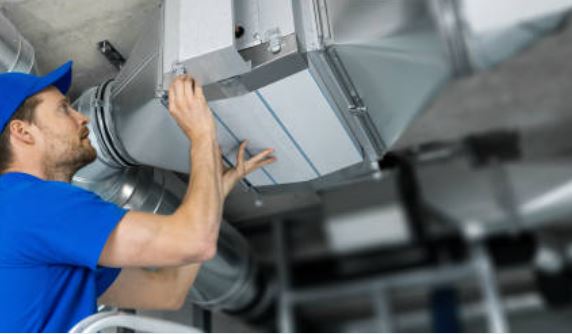
call 818-210-6669
Contact us 24/7 for your HVAC needs
Various questions run through your head regarding the cost, efficiency, lifetime warranty, etc., when considering air conditioning replacement or buying a new one.
You must have questions like, “Is it cheaper to run central air or window units?” or “Do window air conditioning units use a lot of electricity?”
It makes it hard for you to come to a decision.
But worry not; we’ve got you covered.
This blog will guide you through the pros and cons of the window AC units and the central AC units.
So, without a wait, let’s get into it!
How does a Window AC work?
Window air conditioning units are systems that cool or condition a particular room or small space.
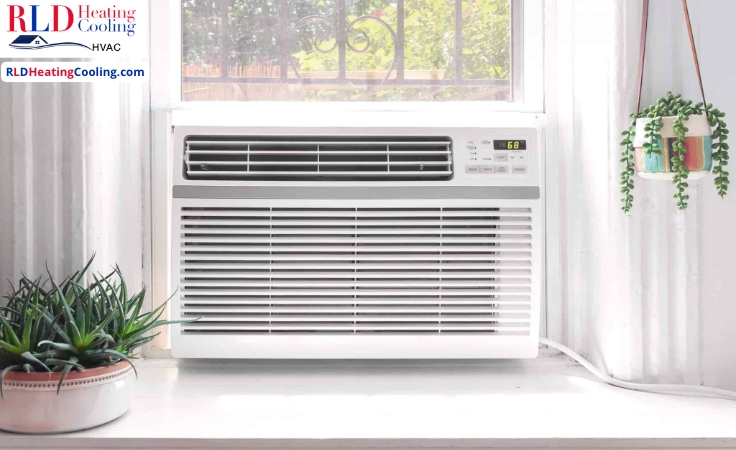
They come in just a single unit, as all the cooling unit components are fitted or contained in a single unit.
Also, the entire unit is fitted into your window pane.
Window fans ACs have a double shaft motor with two fans on both sides of the unit. One fan is near the condenser, and the next one is near the evaporator.
The side that blows cool air and faces your room is the side containing the evaporator unit. It works to cool the temperature of your house.
The other side of the unit, which faces outward, contains the condenser. It deposits hot air collected by the air conditioner.
Also read: Types of central air conditioners.
How does a central AC work?
Central air conditioning systems are the most common system installed in newer homes.
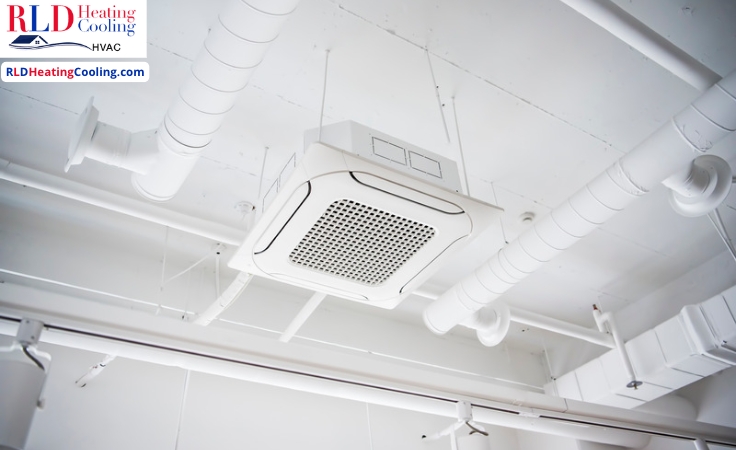
The most beautiful thing about them is that they provide a complete and consistent cooling experience throughout your house.
A central air conditioning system sends cool air through ducts installed in the ceiling and floors.
The duct system network allows the central conditioned air to reach every nook and corner of your house from top to bottom.
Now, central air conditioners are enhanced versions of split systems and contain two segments:
- An outdoor condenser unit contains the compressor, condenser, fan and electrical components.
- An indoor evaporator coil unit is located inside the air handler or is attached to the furnace.
A multitude of refrigeration lines connects the two units, and a thermostat is used to regulate and maintain the temperature inside your house.
The three main factors to consider before buying an air conditioner
When choosing between A window AC v/s a Central AC, it all boils down to four factors, and they are:

- Cost.
- Efficiency.
- Installation.
- Aesthetic.
Window AC V/S Central AC Factor #1: Cost
When we talk about cost, it doesn’t just mean the initial cost of your AC unit.

Other costs should also be considered, such as monthly electricity bills and the system’s operating expenses.
So, when choosing the best unit for your home, opt for one that won’t strain your budget in the long run.
So, if you want to cool your entire house, go for a central air conditioner, while if you’re thinking of just cooling a specific room or hallway, better go for a window ac unit.
Window AC V/S Central AC Factor #2: Efficiency
Efficiency, in simple terms, means how well your system is performing or working.
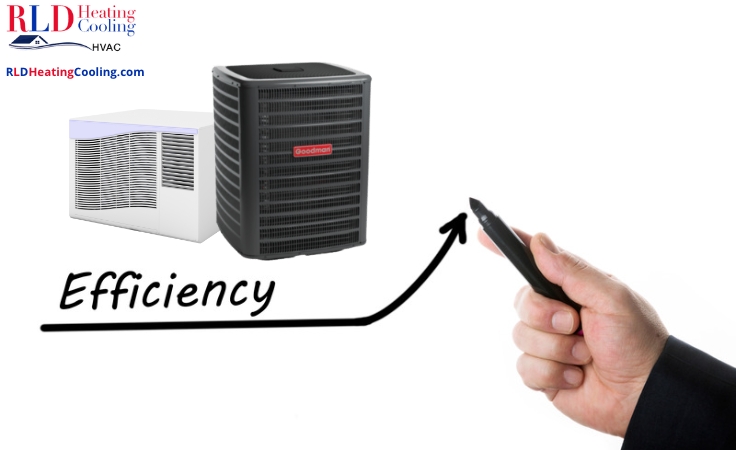
It includes things like:
- Air conditioner size.
- Its performance in maintaining a comfortable temperature.
Also, your air conditioner should be efficient enough to work at its peak performance without using much energy.
The bigger the conditioning space, the better and more influential your air conditioner should be.
It is especially crucial when you live in a hot and humid climate.
Also read: How to choose a central air conditioner.
Window AC V/S Central AC Factor #3: Installation
When considering long-term living in their homes, central air conditioners are a popular option for many people.
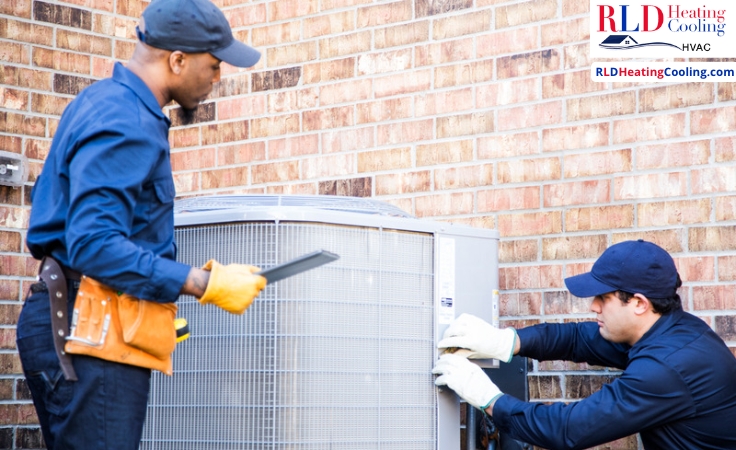
Additionally, this option is particularly suitable in spaces where ductwork or forced-air furnaces are already in place.
By installing a central AC unit, you can ensure that your home is a fully equipped HVAC space.
However, the central air system is extensive and generally involves enormous costs, but it is sure to improve your residence’s resale value.
On the other hand, window units are easy to install and can be done at any time.
Window AC V/S Central AC Factor #4: Aesthetic
From the aesthetic point of view, your home deserves an appealing system that looks nice and makes less noise.
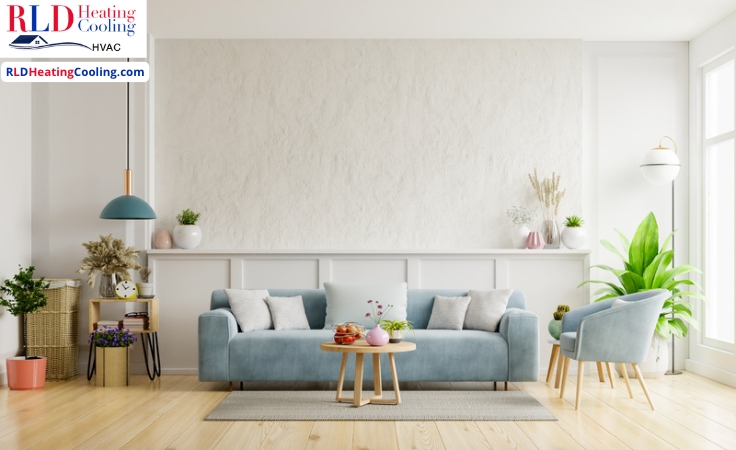
Central air conditioners offer a quiet and less noticeable sound while running, and their placements are often out of sight, around the corners or in the backyard.
On the contrary, window air conditioning units can be seen as they block your view of the outside.
Window AC Pros
Let’s discuss some of the pros or benefits of Window ACs:
Energy efficiency
One of the best features of window air conditioners is their high energy efficiency.
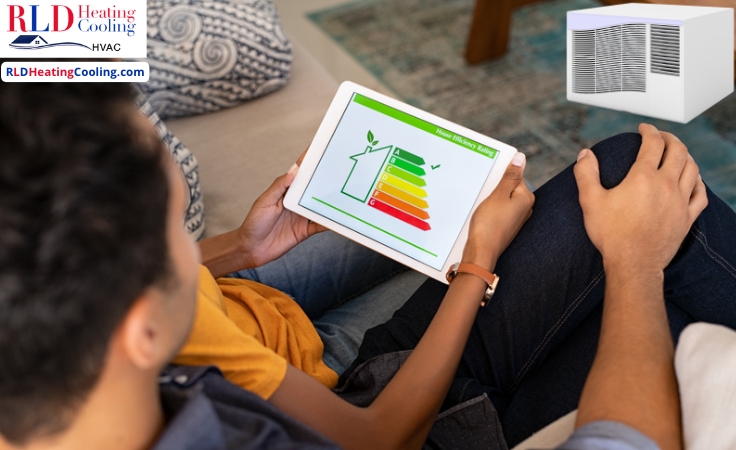
Window air conditioners use around one-eighth of the amount of electricity used by central air conditioning systems.
With that calculation, even if you use window ACs every day for around 8 hours, your energy costs will be around 20$-30$ per month.
The higher the Energy Efficiency Ratio (EER), the better the energy output.
Easy to install
Window air conditioners are best known for their hassle-free and easy installation process.
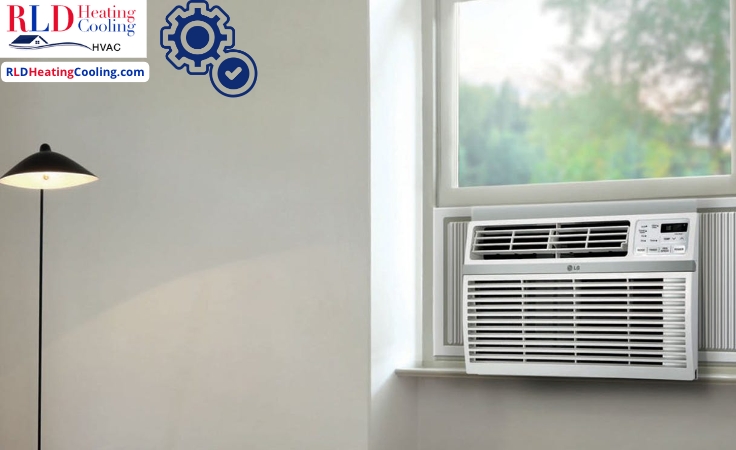
These systems are simple, and anyone without technical skills can install them easily.
The basic process involves opening the window, placing the window unit onto the sill, then closing the window and tightening some screws to prevent the unit from falling off.
If you enjoy DIY projects and are looking for a more adventurous option, installing a window AC is your next prospective task.
Affordable
If you’re under a budget constraint, you don’t need to worry because a window air conditioner won’t break the bank.
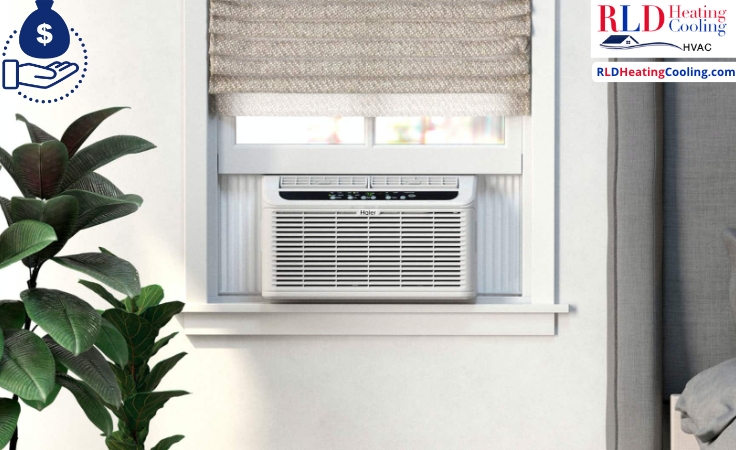
There are numerous unique models available on the market that cost around $100 or less, making them ideal for smaller rooms. (1)
However, it is also important to note that the price of each system directly impacts its efficiency. Cooling capacity and energy requirements.
The systems’ BTUs, or British Thermal Units, measure a window AC’s cooling capacity.
With the BTU number, you can understand how big a room the air conditioner can cool. The higher the BTU rating, the more expensive the system.
Therefore, it is advisable to determine the size of the window you need before making a purchase.
So, here’s a list of the BTU number that fits according to your room size coverage in square feet:
- 5,000 BTU (150 sq. ft.)
- 8,000 BTU (350 sq. ft.)
- 9,000 BTU (400 sq. ft.)
- 10,000 BTU (450 sq. ft.)
- 12,000 BTU (550 sq. ft.)
- 14,000 BTU (700 sq. ft.)
Window AC cons
Here are some downsides of window units:
Cools only a specified area
The biggest issue with Window ACs is that they only cool a specified area of your house.

Therefore, if you plan to install a window unit in every room of your house, don’t expect conditioned air throughout your entire home.
Although you can cool multiple connected rooms with a single window AC, the cold air won’t be evenly distributed.
The room accommodating the unit will be the coldest, while the other rooms will have a slightly higher temperature.
Storing during winter
It’s not wise to keep your window unit installed during the cold months.
The poor weather conditions might cause damage and beat to the outer unit.
Therefore, it is better to take the unit out of the window fitting and store it inside during winter.
And then, when the summer approaches, you reinstall it.
However, if you have a through-the-wall air conditioner, you don’t need to remove it.
These styles of air conditioners remain installed and intact all year.
Limited cooling capacity
While many sizes are available for window AC units, they have a maximum limit on the room size for effective cooling.
The giant window air conditioner you are likely to find is the 25,000 BTU unit, which provides around 1,600 sq. feet of cooling coverage.
If your house or premises are larger, a window unit may not be sufficient for you. Therefore, you must rely on some other type of system.
Central AC pros
Here are some of the advantages of a central air conditioner:
Persistent comfort and cooling

The best thing about Central ACs is that every room of your house can be cooled, and the desired temperature is maintained.
You can enjoy conditioned air throughout the house by simply adjusting the thermostat slightly.
Filtered air in the house
Central air conditioners pull in the hot air from inside your house, pass it through a filter, and then push the cold air back into your home.
Therefore, it is beneficial for individuals who want cleaner air to breathe or are immune to allergies or asthma.
The reason is that filters in a central AC unit can remove dust particles that can exacerbate allergies.
Lower humidity
Since the central ACs filter the air inside and provide better indoor air quality, they also help minimize humidity levels throughout your house.
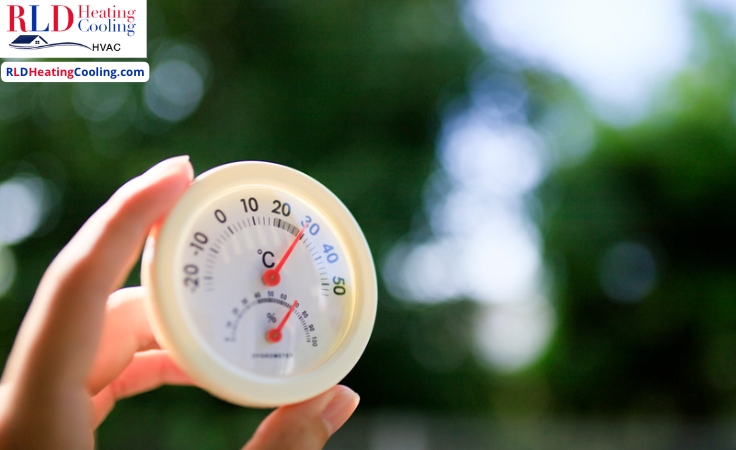
All you need to do is keep the doors of all the rooms open.
It will make sure that moisture is removed from every space.
Cooling and heating
Central air conditioners can now cool and heat your indoor air depending on the weather conditions.
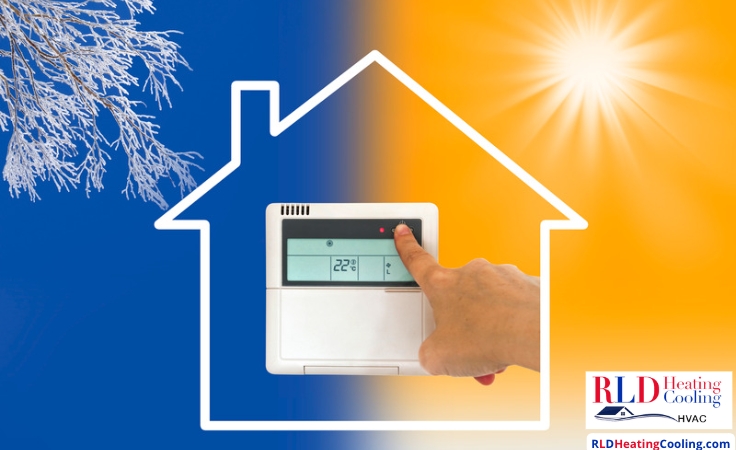
They are particularly helpful in areas that experience both hot and cold seasons.
Therefore, you don’t need to buy or install an electric heater if you already have a central heating system at home.
Central AC cons
Let’s discuss some of the disadvantages of a central AC unit:
High energy cost

During the summers, your central AC might cause a massive spike in your energy bills.
The average cost of using a central AC for 8 hours every day is around $100-200 per month.
Therefore, many people accompany their central units with a window air conditioner to cut some of these costs.
That way, the window unit works for a particular area, and the central AC is used only when necessary.
However, the energy cost significantly depends on other factors such as the central
Professional installation
A considerable downside of owning a central air conditioner is that it can only be installed by a trained professional.
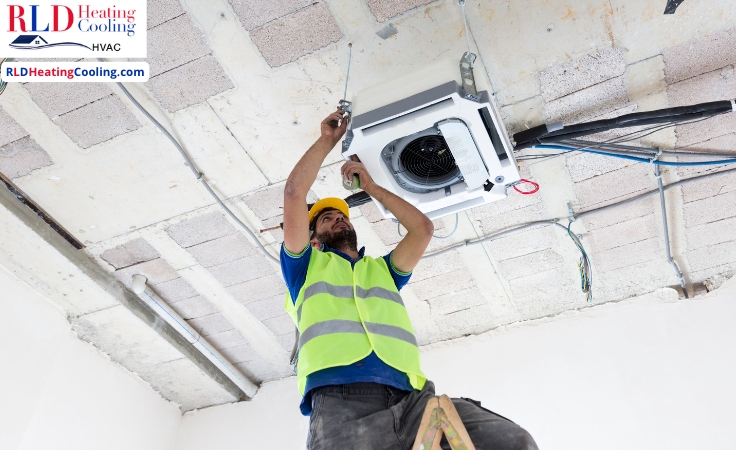
You can’t simply purchase the system and assemble it without having the proper skill set or training.
Additionally, the unit and ductwork cost ranges between $5,000 and $10,000, which is quite expensive for any homeowner.
That’s why many people who purchase houses without a built-in central air conditioner system opt for window units.
Window units are cheap and easy to install, with excellent cooling comfort.
Duct maintenance
Since a significant amount of air passes through your central AC duct system each year, it requires regular maintenance.
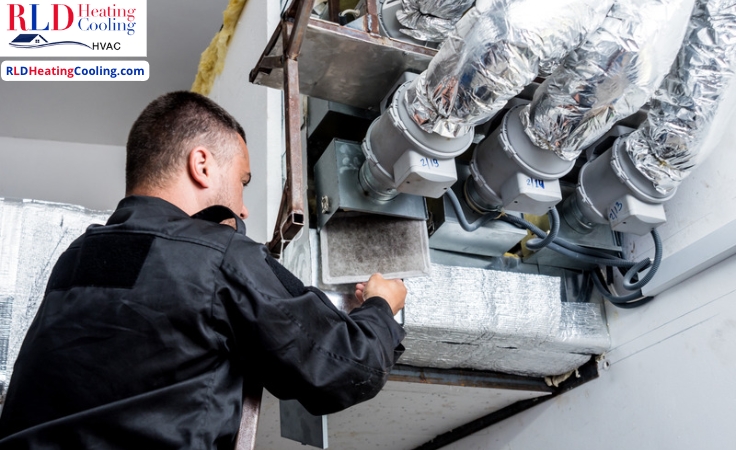
If you don’t maintain it regularly, bacteria and other hazardous particles can start to grow inside, contaminating the air inside your house.
Ideally, it would be a great choice to get the ducts cleaned at least once a year by an expert HVAC professional.
The cost of duct cleaning ranges from $300 to $500 for a standard-sized home.
Window AC v/s Central AC- Final thoughts
When it comes to deciding which of the air conditioning systems is right for you (Window AC V/S Central AC), it generally boils down to some important factors like:
- Cost.
- Efficiency.
- Installation.
- Comfort level, etc.
So, if you’re looking for an energy-efficient system that’s gentle on your budget, a window air conditioner is the best and most logical choice.
However, if cost constraints do not bind you, but you want consistent and comfortable cooling throughout your space, Central AC is the right choice.
If you still have problems deciding on the right system or need help with something else, call us at RLD Services. We love to help you out.
FAQs
Here are some questions people usually ask:
Window AC V/S Central AC FAQ #1: Are window AC units more efficient than central air?
A central air conditioner is better if you want to cool your entire house.
The reason is that you must get multiple window air conditioners to cool your house.
On the contrary, if you’re thinking of cooling specific areas of your house, then window ACs are the best option.
Window AC V/S Central AC FAQ #2: What is the difference between window AC and central AC?
Window air conditioners are different from central air conditioners.
A central air conditioner comprises numerous parts and components.
The primary component is the condenser unit, which is typically placed outside your house or premises, either in the yard or on the roof.
The condenser employs a set of pipes to run the coolant into the air handler.
Central ACs also use the duct system inside the building to distribute the conditioned air into every room.
Now, regarding the window air conditioner, it is a single unit that contains no additional parts or components.
The unit contains the condenser, thermostat, evaporator, and fan, all of which are built inside.
The unit fits inside your window frame for cooling a single room or a small space.
Window AC V/S Central AC FAQ #3: Does window AC consume more electricity?
Well! The short and easy answer to this is that it depends.
It is because window ACs, in themselves, are not inherently less or more energy efficient.
They are just as energy-efficient as split ACs in some instances.
But the main difference in efficiency lies in the Energy Efficiency Ratio (EER) of the air conditioner.
Window AC V/S Central AC FAQ #4: Is Central AC more efficient?
Central air conditioners are more energy efficient than window or room air conditioners.
In addition to enhanced efficiency, they operate quietly and are way more convenient.
So, to save money and electricity, you must get an air conditioner that is super energy efficient and reduce your AC’s energy use.
Resources
https://www.trane.com/residential/en/resources/blog/whole-house-ac-vs-window-ac-units
